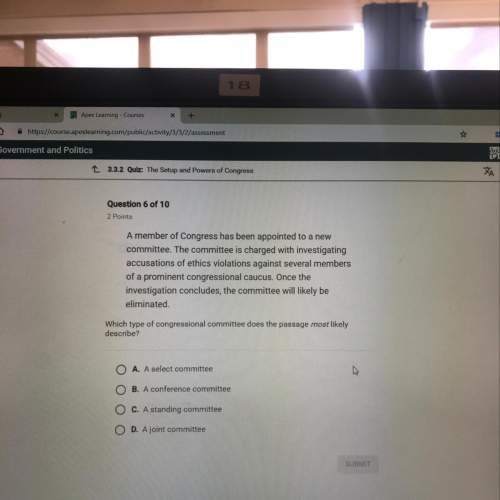
History, 07.12.2020 04:20 gabrielmtrue
Can someone please summarize this?
Particularly the last paragraph, is it talking about how evidence of rectification in Athenian female status is questionable since the majority of attestations originate from Athens. (and athens is male dominated?):
One Athenian group that can without absurdity be called an exploited productive class was the women. They were unusually restricted in their property rights even by comparison with the women in other Greek states. To some extent the peculiar Athenian disabilities were due to a desire on the part of the polis to ensure that estates did not become concentrated in few hands, thus undermining the democracy of smallholders. To this social and political end it was necessary that women should not inherit in their own right; an heiress was therefore obliged to marry her nearest male relative unless he found a dowry for her. The prevailing homosexual ethos of the gymnasia and of the symposium helped to reduce the cultural value attached to women and to the marriage bond.
Against all this, one has to place evidence showing that, whatever the rules, women did as a matter of fact make dedications and loans, at Athens as elsewhere, sometimes involving fairly large sums. And the Athenian orators appealed to the informal pressure of domestic female opinion; one 4th-century speaker in effect asked what the men would tell the women of their households if they acquitted a certain woman and declared that she was as worthy to hold a priesthood as they were.
In fact, priesthoods were one area of public activity open to women at Athens; the priestess of Athena Nike was in some sense appointed by lot “from all the Athenian women,” just like some post-Ephialtic magistrate. (Both the inscription appointing the priestess and the epitaph of the first incumbent are extant.) The Athenian priests and priestesses, however, did not have the political influence that their counterparts later had at Rome; only one anecdote attests a priestess as conscientious objector on a political issue (Theano, who refused to curse Alcibiades), and it is suspect. It is true that Athenian women had cults of their own, such as that of Artemis at Brauron, where young Athenian girls served the goddess in a ritual capacity as “little bears.” Such activity, however, can be seen as merely a taming process, preparatory to marriage in the way that military initiation was preparatory to the male world of war and fighting.
Nevertheless, it was arguably in religious associations that the excluded situation of Classical Athenian women at the political level was ameliorated. At Athens and elsewhere, the rules about women and sacrifice seem to show that the political definition of female status was more restricted than the social and religious. As always, however, there is a problem about evidence. Much of it comes from Athens, yet there is reason to suppose that the rules circumscribing Athenian women were exceptional; the “Gortyn code” from mid-5th-century Crete, for example, seems to imply that women held more property there than was usual at Athens in the same period.

Answers: 3
Another question on History

History, 21.06.2019 17:30
The solvent union and u.s believed in two different economic systems which was?
Answers: 1

History, 21.06.2019 22:40
Jacksonian democracy promoted new methods of political campaigning. one such technique was mudslinging. what was its effect on the presidential candidates?
Answers: 1

History, 22.06.2019 08:30
Which of the following wars was the most devastating to oklahoma? a. american revolution b. mexican-american war c. civil war d. world war i
Answers: 1

History, 22.06.2019 09:30
What was true of public schools started by republicans across the south
Answers: 1
You know the right answer?
Can someone please summarize this?
Particularly the last paragraph, is it talking about how evidenc...
Questions


Mathematics, 08.04.2020 04:20








Computers and Technology, 08.04.2020 04:20



History, 08.04.2020 04:20




Computers and Technology, 08.04.2020 04:20






